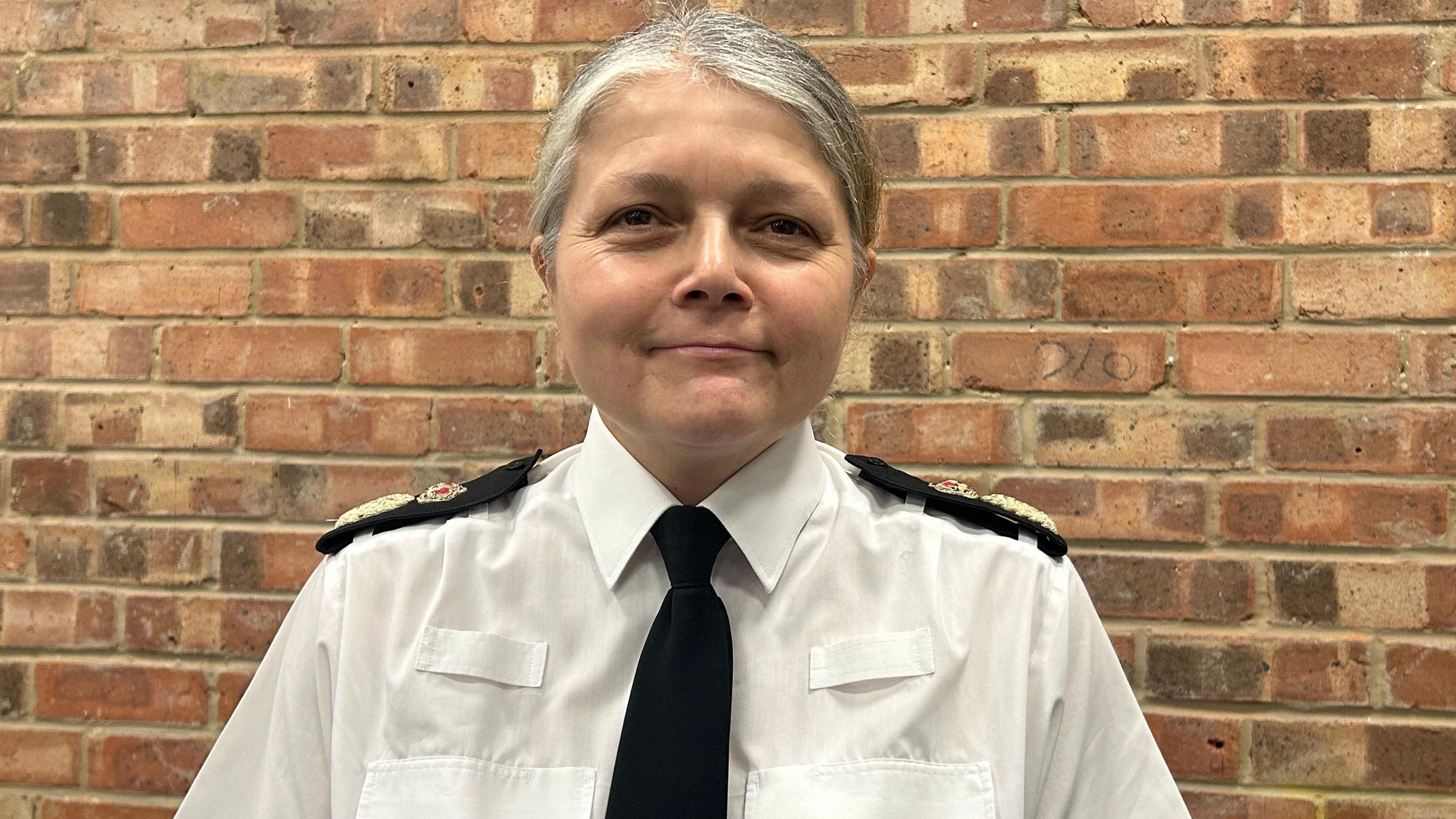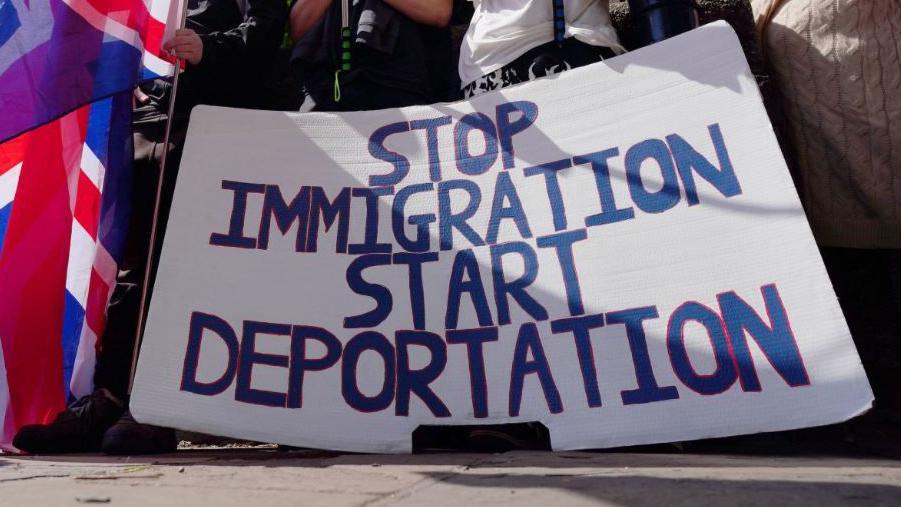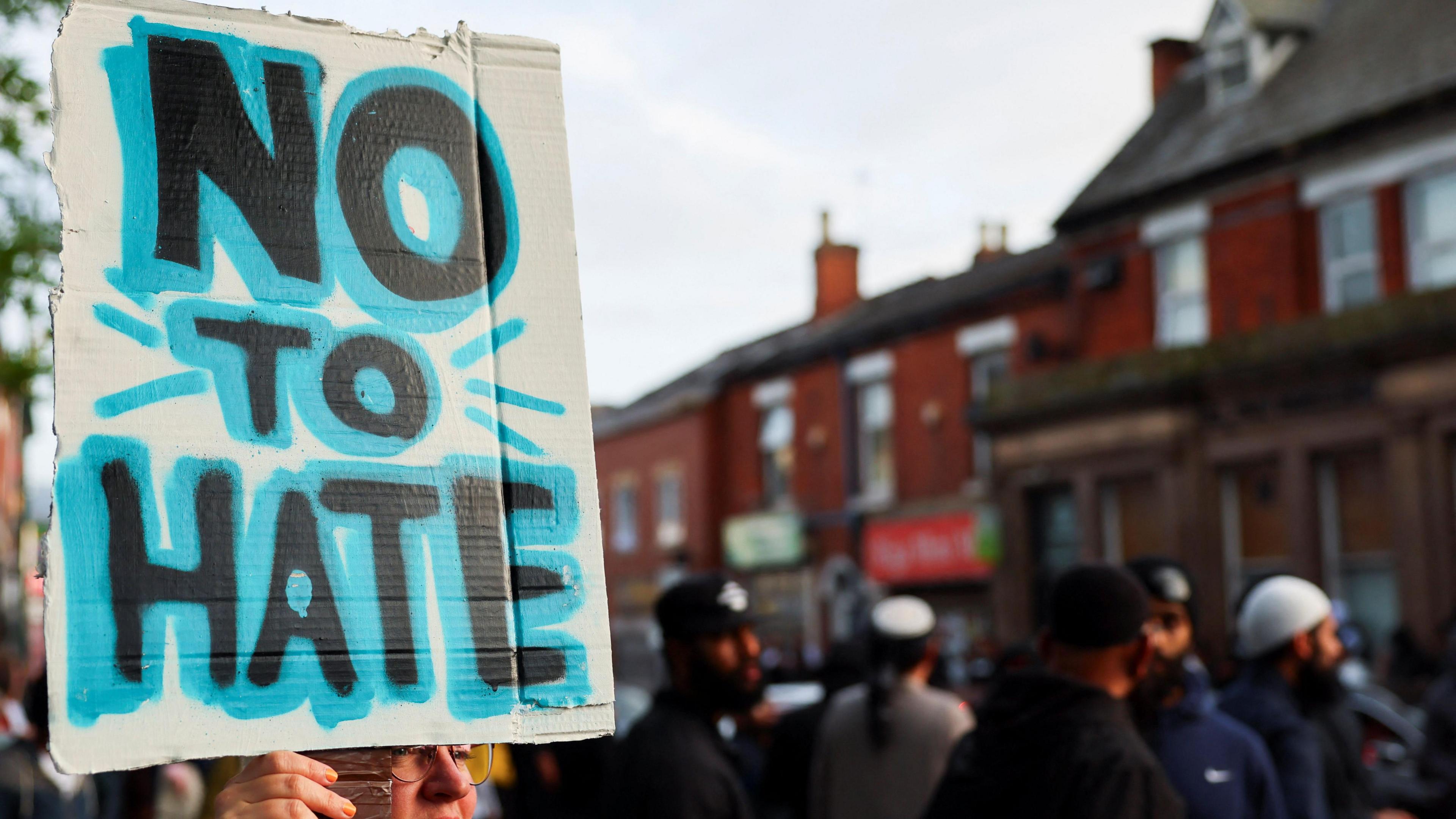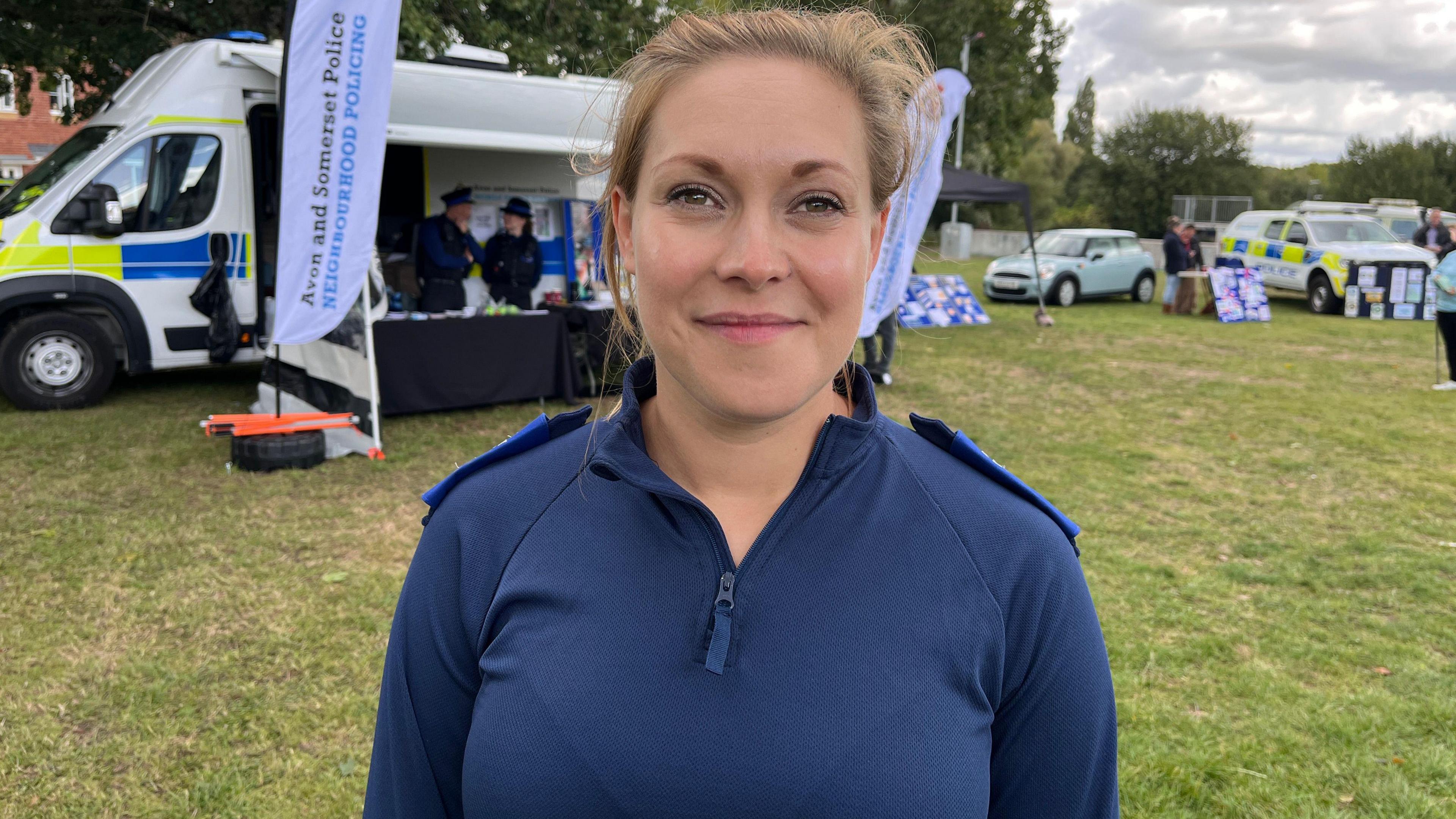Police working to end 'steady rise' in hate crime

Sarah Crew spoke to BBC Radio Bristol about a range of subjects
- Published
The chief constable of Avon and Somerset Police says there has been a "steady rise" of reported hate crime in the area over the past five years.
Sarah Crew spoke to BBC Radio Bristol after she issued a statement that asked people to "stand against hate" following a spike in racially and religiously motivated attacks. Many were prompted by the Southport attack and anti-immigration protests, she said.
According to the force, 5,806 hate crimes have been recorded in the area so far this year, but the figures do not "fully reflect" the community as not all incidents are reported.
"We're at our strongest when we're unified and together against those that seek to divide us," Ms Crew said.
The chief constable issued the statement last month after she spoke to "fearful" ethnic minority communities in the region.
In September, a nine-year-old girl was shot with an airgun in Brentry, and a three-year-old mixed race child was verbally abused in Yate.
Police said both incidents were racially motivated.
A mosque was also damaged in an alleged religious hate crime in Taunton.
Ms Crew said the force would work to build a "trust and confidence gap" in some minority groups by actively engaging with them.
"It's so important that I listen and I make a really strong message that if there is hate crime, we will investigate it robustly and thoroughly in the areas that these instances are happening," she said.
"We've got a role to work with our other partners and communities themselves in creating conditions of safety where people can go about their lives and live it in a way that's lawful, peaceful and they can thrive.
"It's a very delicate balance and you only achieve that by engaging with communities," she added.
Get in touch
Tell us which stories we should cover in Bristol
Follow BBC Bristol on Facebook, external, X, external and Instagram, external. Send your story ideas to us on email or via WhatsApp on 0800 313 4630.
Related topics
- Published25 September

- Published24 September

- Published2 September
